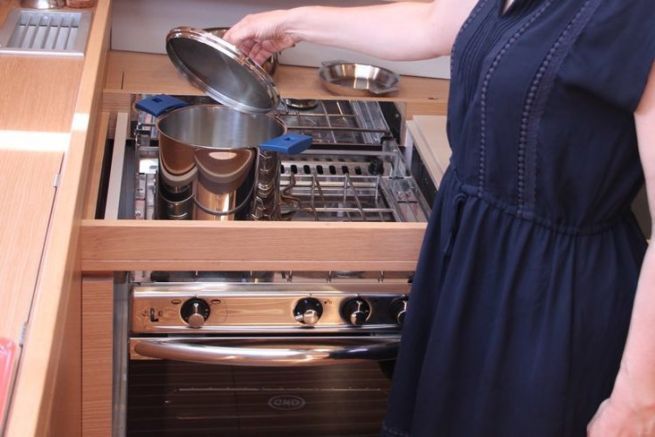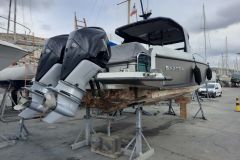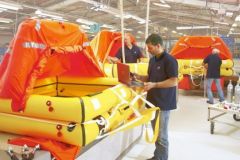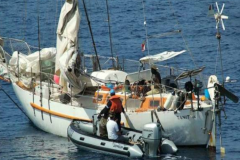We often use, in some form of storage or other, gas on a boat. Mainly to prepare the meal. Most commonly, it's butane. Whether large capacity bottles or simple cartridges for stoves, the leakage of liquefied gas (butane and propane are gases stored in the liquid phase) is a major risk on board boats.
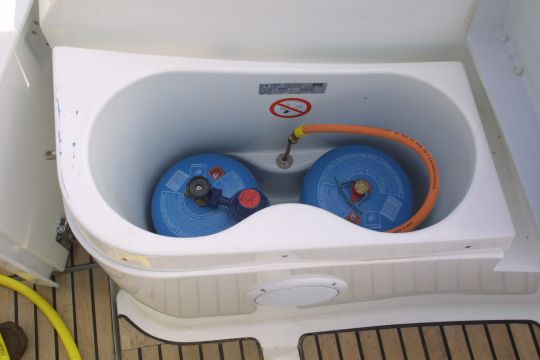
Every year several boats suffer a disaster due to a gas leak. However, all devices exist to stop such leaks and protect against an explosion. However, they still have to be used, as they are almost all present by default in our installations.
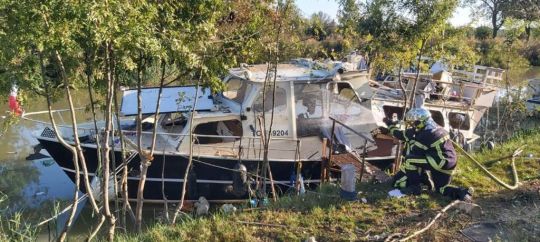
Basic advice prevents accidents
Properly stored and used, commercially available gas cylinders are extremely reliable. Suppliers carry out rigorous safety tests on the cylinders. Pressure tests are carried out periodically on the return of the gas cylinders, from 15 to 30 bar for butane gas cylinders and 30 bar for propane gas cylinders. All cylinders are subject to hydraulic test checks at predefined intervals.
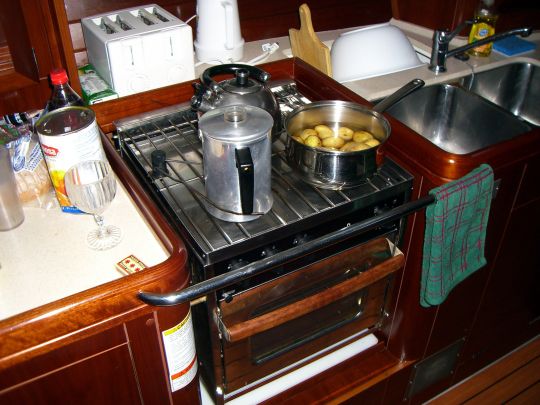
In other words, the risk does not come from the gas bottle itself. Most often, the gas leak appears either on the pipe that connects the tank to the cooking appliance or at the terminal itself. Safety or warning devices exist and should always be put in place. The damage caused to a boat by a gas explosion is enormous.
Passive safety
Passive safety is anything that does not have an immediate effect on the occurrence of an incident, but aims to prevent it. For example, on a car, headlights do not prevent an accident, but at night, they prevent it from happening because of a lack of visibility.
- Bottle installation
Under no circumstances should a lying gas bottle be used. The gas expands in the upper part of the cylinder, between the liquid and the valve. In such a position, the fuel would not come out of the valve as gas, but as liquid.
- Expiry date
A replaceable gas hose must have an expiration date. It is important to replace it at the latest on this date, and in any case as soon as it shows signs of ageing (cracking, lack of flexibility...).
- Leak detection
Stand-alone gas detectors (often calibrated to detect butane, propane and methane) are commercially available for less than 30 euros. They will trigger a shrill siren as soon as gas is detected. Ideally, you will have a detector in the area where the gas bottle is stored. Finally, as these liquefied petroleum gases (LPG) are heavier than the ambient air, a detector at ground level in the square. And a last one at the lowest point of the boat, the bilge for example. Not only are LPGs toxic to humans, they are also highly explosive. Butane, for example, is explosive from a concentration of 1.8% in the ambient air.
- Room ventilation
The spaces or cupboards for storing gas cylinders shall be ventilated to prevent the formation of the explosive cloud. Never block the ventilation grilles, they are a real safety feature.
Active safety
On the other hand, active safety will prevent the accident from happening. To take our example of the car and its lighting, automatic light start devices are active safety features of our cars.
- Flame detector
Heating or cooking appliances are now equipped with devices that will cut off the gas outlet if they are not heated by the flame. That's why we have to stand on the gas stove tap for a few moments to allow the flame to start on its own. Under no circumstances should you cheat with this system by attaching a weight or pliers to it.
- Prolonged absence = tap closed
The gas valves on the cylinders shall by default be closed when the installation is not in use, let alone when leaving the vessel.
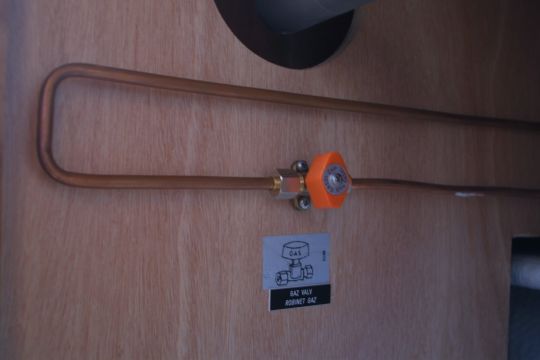
- Cylinder installation with the valve facing a partition wall
In the event of a fire at the fuel outlet valve, it will be easier to take action to extinguish the fire and close the valve if you yourself are out of reach of the flames.
How to store gas bottles?
In principle, it is preferable not to store gas. It is acceptable, however, to have n+1 cylinder, i.e. the number of containers in use + one reserve container. In our maritime use, cylinders are obviously not stored when exposed to the elements (sea water is particularly corrosive), but not inside the premises either. Ideally, therefore, it is in an external box, watertight against water projections, but ventilated towards the outside, that the gas cylinders will be stored.
Of course, this trunk will only be dedicated to this use, out of question to concentrate in the same place tools, fuel...
How do you fight a gas fire?
Liquefied petroleum gases generate type C fires. They require a multi-purpose dry chemical extinguisher to be used to fight them, which can be used on several types of fire.
The gas installations, both active and passive, are standardized on board our ships. We invite you to read the article explaining the regulation of gas installations on board vessels that we're offering you.
